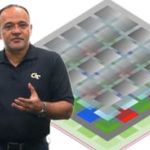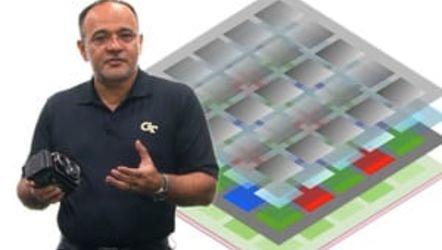
Computational Photography
Summary
This class explores how computation impacts the entire workflow of photography, which is traditionally aimed at capturing light from a 3D scene to form a 2D image. A detailed study of the perceptual, technical and computational aspects of forming pictures, and more precisely the capture and depiction of reality on a (mostly 2D) medium of images is undertaken over the entire term. The scientific, perceptual, and artistic principles behind image-making will be emphasized, especially as impacted and changed by computation.
Topics include the relationship between pictorial techniques and the human visual system; intrinsic limitations of 2D representations and their possible compensations; and technical issues involving capturing light to form images. Technical aspects of image capture and rendering, and exploration of how such a medium can be used to its maximum potential, will be examined. New forms of cameras and imaging paradigms will be introduced.
Expected Learning
You will undertake a hands-on approach over the entire term using computational techniques, merged with digital imaging processes to produce photographic artifacts. In addition to understanding how various elements of the computational photography pipeline function together to produce novel - and sometimes stunning - results, you will be given ample opportunity to appreciate and critique artifacts produced/curated by your peers.
Syllabus
Please refer to the course schedule for detailed syllabus set to a suggested timeline for Spring 2015, along with assignment due dates and additional materials.
Here is a brief outline of the topics covered:
Module 1 - Introduction
- Introduction
- What is Computational Photography
- Dual Photography
- Panorama
- Why Study Computational Photography
Module 2 - Digital Imaging
- What is a Digital Image
- Point Processes
- Smoothing
- Blending Modes
- Convolution and Cross-Correlation
- Gradients
- Edges
Module 3 - Cameras
- Cameras
- Lenses
- Exposure
- Sensor
Module 4 - Comp Vision to Comp Photo
- Fourier Transform
- Blending
- Pyramids
- Cuts
- Features
Module 5 - Applications
- Panorama
- HDR
- Time Lapse
- Procam Systems
- Mosaics
Module 6 - Light Field
- Lightfield
- Lightfield Camera
Module 7 - Blur / De-Blur
- Lucy-Richardon Blur
- Flutter Shutter
Module 8 - Video
- Video
- Video Textures
- Video Stabilization
Module 9 - Closing Thoughts
Further resources:
- Spring 2015 course website: Course information, assignments, academic policies, grading scheme.
- Piazza forum: Discussions, announcements, clarifications.
- T-Square site: Assignment submissions.
Required Knowledge
Students should be familiar with:
- College-level linear algebra and calculus: Knowledge of matrices, vectors, differentiation and integration, although the focus will be more on understanding and applying mathematical structures - not necessarily deriving your own;
- Physics: Vectors, optics;
- Probability theory: Distributions, density functions.
Programming assignments for this course can be completed either using Python-OpenCV (recommended platform) or Matlab/Octave. Working knowledge of either Python or Matlab would thus be required.
Free
Intermediate
17 weeks
Irfan Essa
Georgia Institute of Technology
Coursearena
